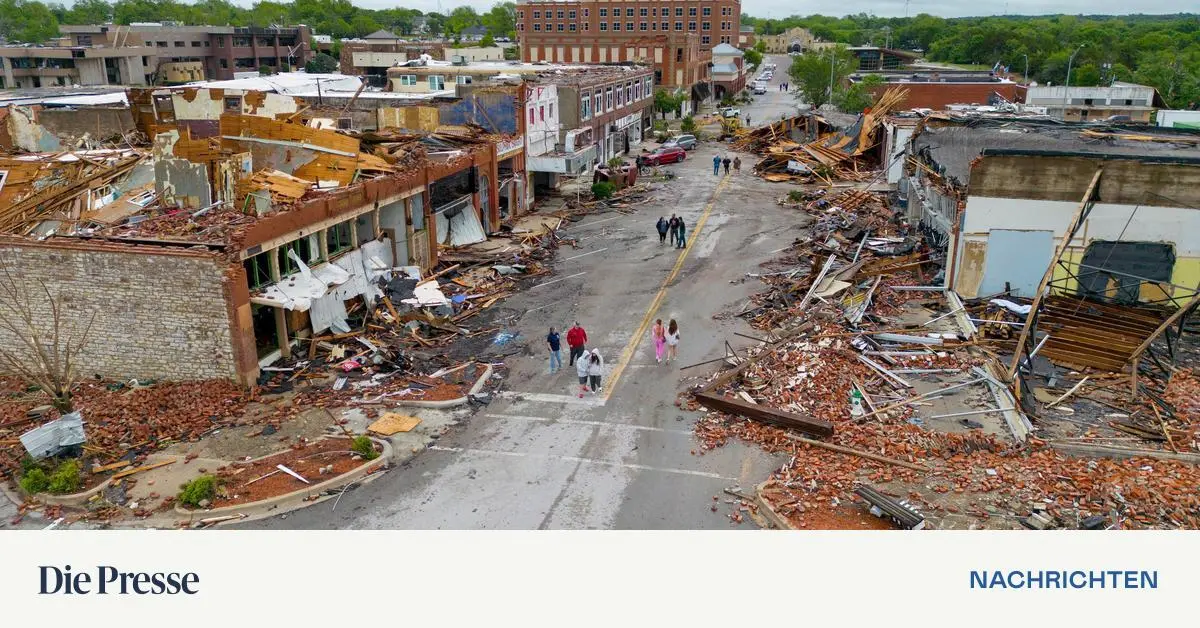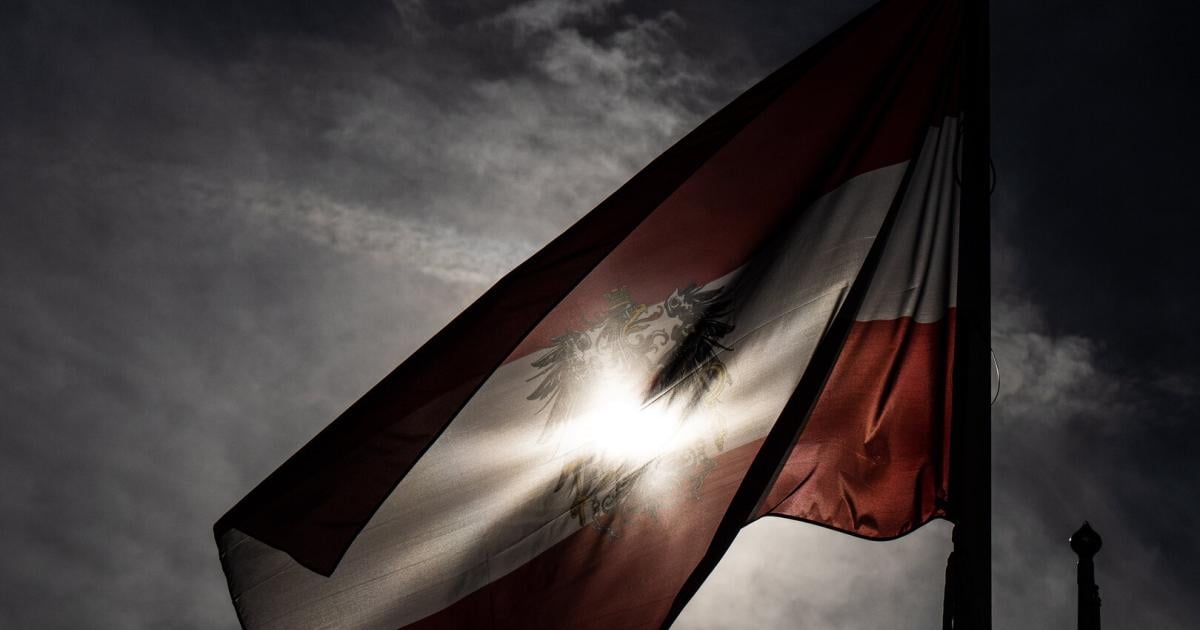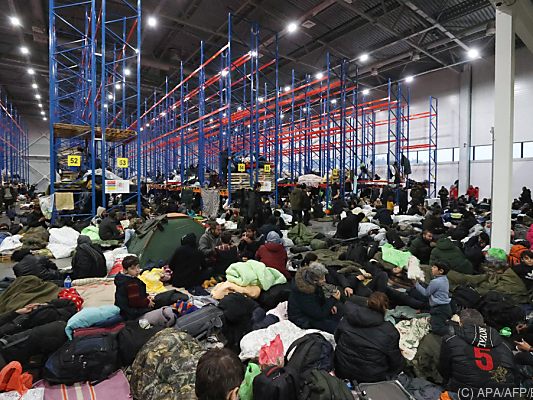The warehouse in Brusgi serves as an emergency shelter for migrants
© APA / AFP / BELTA
Polish Defense Minister Mariusz Blaszczak has accused Belarus of changing its strategy in the struggle over migrants at the common border. “Now immigrants and the Belarusian authorities have used a new method. Small groups of people are trying to cross the border in many places,” he told RMF FM radio on Saturday. Thousands of refugees have been stranded at the Belarus-Polish border area for weeks.
“There is no doubt that these attacks are under the control of the Belarusian authorities,” Blashchak said. On Saturday, Polish border guards also reported that several small groups had tried to cross the border. A few dozen people were involved in each case. However, the security forces also reported that a larger group of about 200 people was armed with tear gas, fireworks and stones.
According to its data, the Polish authorities recorded a total of 195 illegal attempts to cross the border on Friday. “82 foreigners were asked to leave Polish territory. Two Ukrainian citizens and one German citizen were arrested for aiding and abetting,” the border guards said on Twitter on Saturday.
“We have to be prepared for the fact that this problem will continue for months. I have no doubt that this will be the case,” Blaschak said.
The European Union accuses Belarus Governor Alexander Lukashenko of organizing migrants from crisis regions to the bloc’s external borders in order to put pressure on the West. People from Iraq, Syria and Afghanistan entered Belarus on tourist visas. Minsk rejects these allegations.
Lukashenko told the BBC on Friday that it was “quite possible” that the Belarusian armed forces would help the migrants enter the European Union, but denied organizing the operation. “We are Slavs. We have a heart. Our forces know that the migrants want to come to Germany. Maybe someone helped them,” he said. “But I didn’t invite you here.”
For weeks, thousands of refugees from the Middle East, including many Kurds from Iraq, have been stuck in the Belarus-Poland border region in frigid temperatures. Poland erected a border fence and amassed more than 15,000 security guards at the border.
Many Iraqis and Syrians wanted to stay until the European Union let them in, several Iraqis and Syrians told a German news agency reporter in emergency housing in a warehouse in Brusje. The border point there is closed with concrete barriers and barbed wire. In front of the emergency shelter, aides continued to provide food and medical aid to people on Saturday. Poor health conditions. The civil defense also strengthened fire protection.
In front of the converted logistics center, the Secretary-General of the Belarusian Red Cross, Dmitry Shevtsov, said that people will receive everything they need. According to estimates, there are still about 2,000 people who refuse to return home and want to go to Germany, Belgium and other EU countries. They are guarded by armed men in uniform and cannot leave the building.
Belarusian investigators also continued to interrogate migrants who were wounded from the Polish side last Tuesday when water cannons and tear gas were used. Children were also injured. People were interrogated with the help of interpreters. The Commission of Inquiry in Belarus talks about 100 victims.
Belarus Governor Alexander Lukashenko compared Polish security forces to “fascists” in an interview with the BBC. He said they also violated the Belarusian state border using water cannons and tear gas. Lukashenko claimed that chemicals were used that would destroy “cockroaches”.
The Catholic Church in Poland indirectly criticized the regime in neighboring Belarus due to incidents at the common border. At the same time, they thanked the Polish border guards, soldiers and police for the fact that “in this extremely difficult situation they fulfill their obligation to defend our borders and ensure the safety of all people living in Poland.”

“Food practitioner. Bacon guru. Infuriatingly humble zombie enthusiast. Total student.”







More Stories
Russia announces its next arrest in eastern Ukraine
Donald Trump's would-be vice president kills her 1-year-old dog
The Prime Minister of Scotland announces her resignation